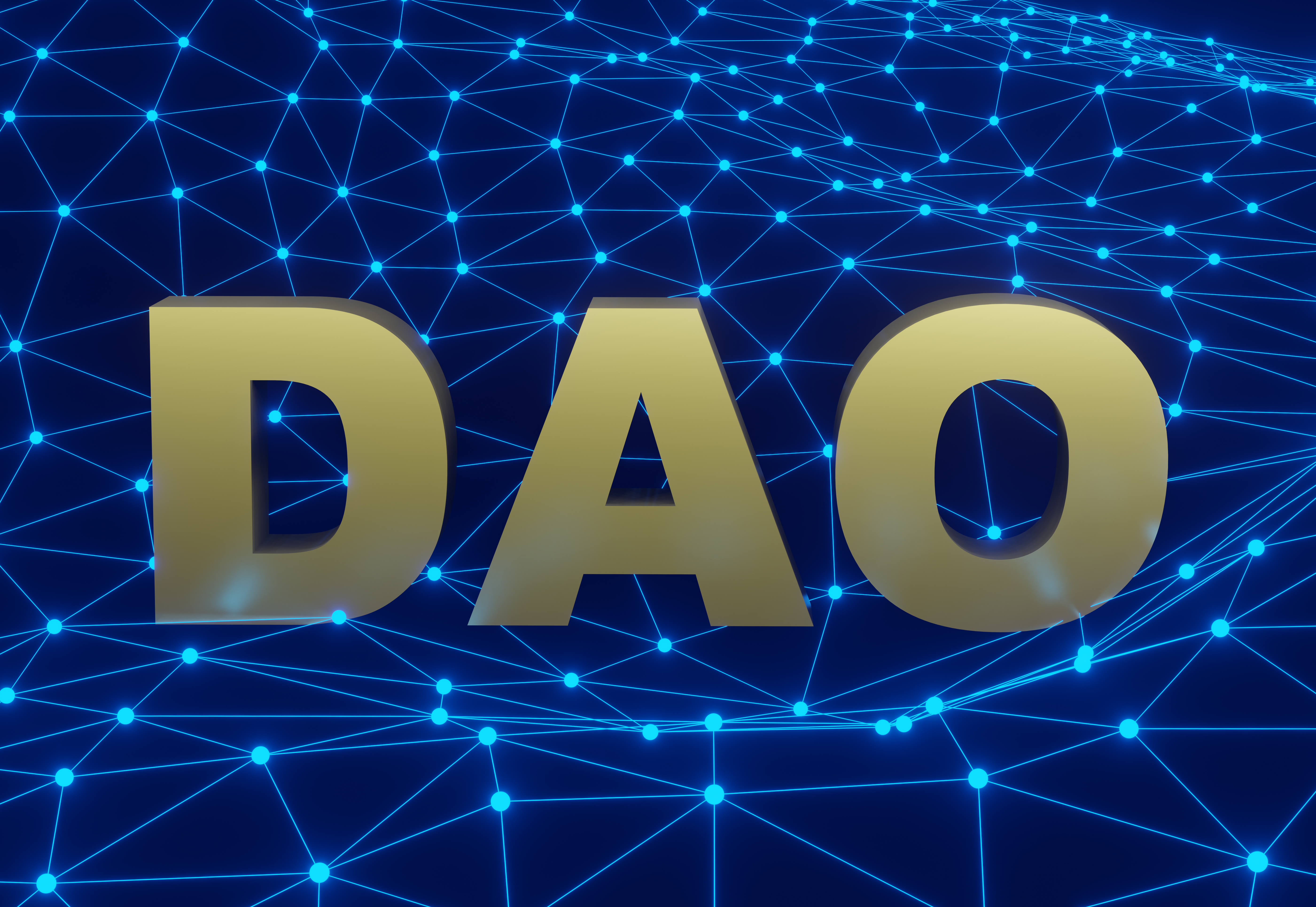
NFT development has revolutionized various industries by providing investors, traders, and global corporations with new ways to make money, such as tokenizing assets. NFT marketplaces allow users to create, mint, buy, and sell tokens daily.
Every NFT marketplace offers unique benefits to its active users. For example, some platforms simply provide a marketplace where users can show off their digital collectibles and participate in trading. Other platforms focus on engaging users in multiple games and rewarding them through NFT staking.
According to blockchain experts, NFT marketplaces tend to improve themselves with new ideas and features.
An NFT DAO (sometimes called DAO NFTs or a DAO for an NFT project) is a decentralized group that uses smart contracts and on-chain/off-chain voting to manage an NFT collection, a marketplace, or a community treasury.
If you’re planning a DAO layer for an NFT product, our team can help with blockchain consulting services from governance design to a realistic delivery roadmap.
In practice, NFT DAOs are used to fund new drops, collectively buy and manage NFTs (collector DAO), set community rules, and even govern royalties and utility across a project’s ecosystem.
In this guide, we’ll cover how NFT DAOs work, common models (NFT-gated vs token-gated), tools used in real projects, and examples of popular NFT DAOs.
In search terms, “DAO NFTs” usually refers to NFT projects where governance, treasury, or key platform rules are managed through a DAO.
In this article, we will discuss the key aspects of DAO-based NFT platforms, how they differ from traditional platforms, and the advantages they offer.
DAO stands for Decentralized Autonomous Organization. It is a community-led organization that guarantees voting rights to their holders. DAOs are based on smart contracts that automatically execute and perform actions when predefined conditions are met.
Most DAO rules live inside smart contracts so smart contract development is the foundation of secure voting, permissions, and treasury execution.
As the name implies, DAOs are decentralized and autonomous. DAO’s rules are stored on an open-source blockchain, so anyone can view their code and transaction records. There is no central governing body, so community members can initiate changes and then vote on them.
A DAO operates much like a corporation, except that it doesn’t have a hierarchical structure. This form of legal structure aims to provide more democracy through decentralized governance. Unlike a traditional organization, members of a DAO are not bound by a formal contract. Instead, they are bound together by a common goal or incentives written into the rules.
To sum up, let’s take a look at the key takeaways about decentralized autonomous organizations.
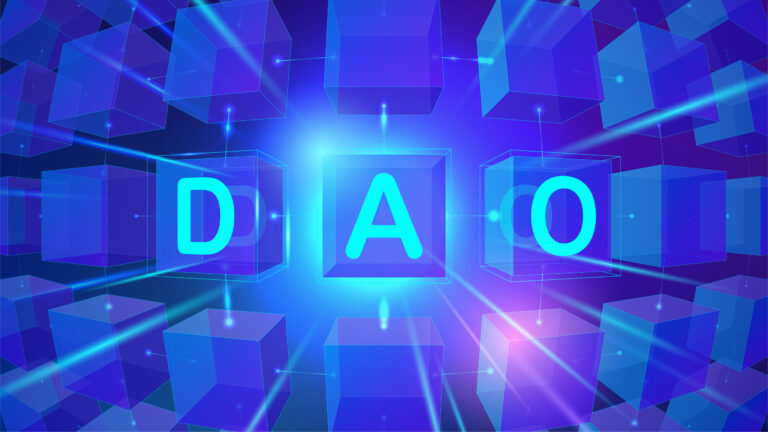
Decentralized autonomous organizations rely on a set of rules and regulations defined by a smart contract on a blockchain. First, smart contracts are open protocols programmed to execute when predefined criteria are met. In addition, they become immutable right after deployment. Smart contracts are publicly available and verifiable, allowing any member to view the contract, financial transactions, and decisions of the DAO.
Decentralized autonomous organizations rely on rules enforced by smart contracts our smart contract development team helps design governance logic, upgrade paths, and security controls.
Thanks to smart contracts, DAOs are completely transparent. And because DAOs are decentralized, there is no central authority that can change the rules in the smart contract. Instead, any change can be made by a majority vote of the community.
After that, the platform should decide how to accept investments and provide governance. To participate in a DAO, a person must own a token. Token ownership comes with governance and voting rights. The more tokens a person owns, the more voting power they have.
These rights can influence decisions in the organization by creating proposals and voting for or against them. Proposals typically involve decisions about the future of the organization, the distribution of funds, and more. In addition, a proposal must receive the votes of the majority of token holders and comply with the DAO’s rules and regulations in order to be passed.
In general, the DAO platform is funded by selling its governance tokens through public or private offerings. However, in certain cases, users don’t have to invest in the organization to become members.
In practice, rules can change either through community governance or via privileged admin/upgrade controls (depending on how the contracts are designed). Mature projects aim to minimize unilateral admin power and make upgrades governance-controlled.
Now that you know the basics of a DAO, let’s see how it relates to NFTs.
One of how DAOs and NFTs are closely linked is in the form of community governance. DAOs can help create NFT projects through community governance. This is why many teams build a DAO for an NFT project to let holders influence roadmap decisions, treasury spending, and community rules. This allows community founders and members to collectively make decisions and suggest ideas for further development of the NFT project.
However, the connection between NFTs and DAOs isn’t limited to community governance. A collector DAO is another form of connection between DAOs and NFTs. A collector DAO is an organization that puts together funds to purchase and issue NFTs.
Investing in an NFT project, especially a popular one, often calls for significant capital, which can be difficult for smaller traders to afford. Collector DAOs are the solution to this problem, as they allow multiple individuals to own a fraction of an NFT. The APE DAO is an example of a collector DAO. It fractionalizes NFTs from the Bored Ape Yacht Club collection, allowing multiple users to own fragments of the same asset.
In addition, DAOs have the potential to help smaller NFT creators and projects build a dedicated community. Unlike celebrities and famous artists who already have a respectable fan base, emerging creators are less likely to have a dedicated community from the start. Similar to a crowdfunding platform, collector DAOs can help raise funds and build engaged communities for various NFT projects by allowing users to vote for the projects they most want to see succeed.
Many NFT communities run governance in two common ways:
NFT-gated DAO — membership and voting power are tied to holding a specific NFT (or a set of NFTs).
Token-gated DAO — governance is tied to fungible tokens (ERC-20 style), often used for broader protocol decisions.
Quick comparison
NFT platforms before DAOs
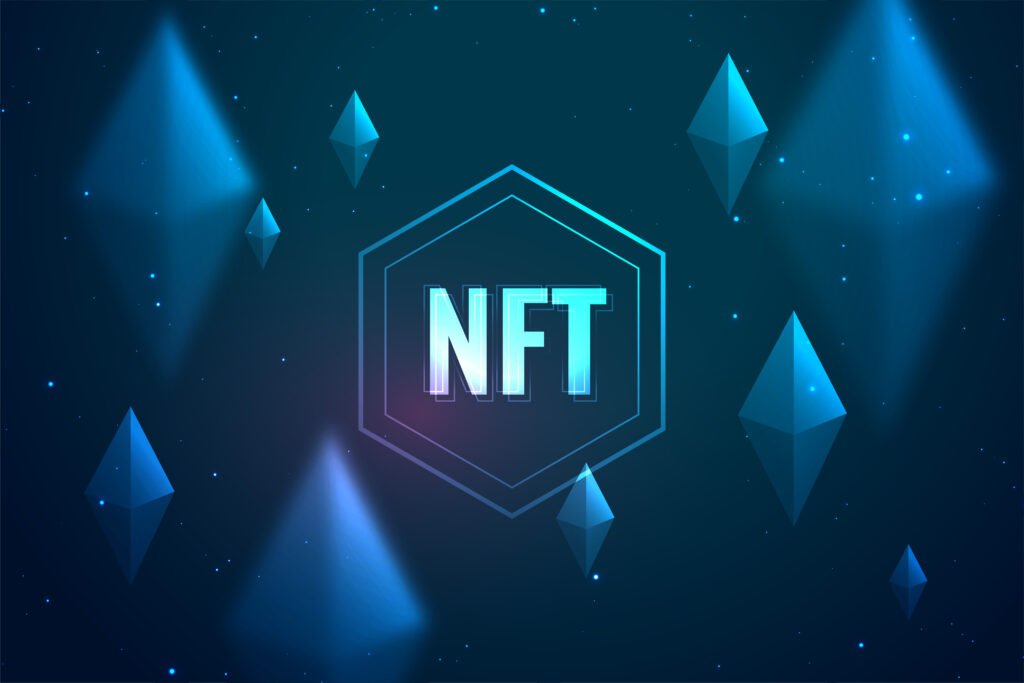
Smart contracts are used to implement non-fungible tokens on a blockchain. Each NFT minted on the blockchain protocol contains unique information known as Metadata.
While NFTs live on-chain, many NFT marketplaces and platforms are still centralized in practice (front-end access, moderation, listing rules, fees, order books, and metadata hosting). DAO-enabled NFT platforms aim to shift parts of these decisions to community governance—especially around treasury management and platform policies.
To sum up, the key features of NFT platforms without DAOs include:
This is where DAO-enabled marketplaces stand out, governance can shape listing rules, fees, and treasury policies inside an NFT marketplace development architecture.
NFT platforms after DAOs
DAOs provide a distributed decision-making system that brings greater transparency. It automates the governance of NFT platforms and allows users to actively participate in deciding the future of the platform. In addition, DAOs can remove the barriers to decision-making. Therefore, users have the power to vote and change the governance of the platform.
Rather than having stakeholders trust a manager or CEO, DAOs aim to distribute the power to control the organization among the users who run the NFT platform. For example, if five members together create an organization, they can vote and initiate governance changes.
With many people participating and contributing to the success of a DAO, DAO-based platforms provide quick and efficient solutions more easily than traditional ones. Because of the potential benefits of autonomous organizations, most companies prefer DAOs to take advantage of decentralized governance.
To sum up, the key features of NFT platforms with DAO are as follows:
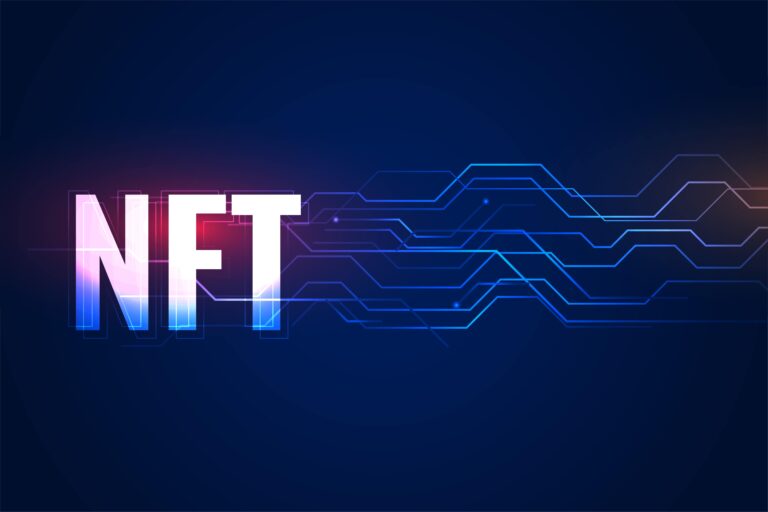
Let’s take a look at the types of DAO-enabled NFT platforms.
Community
DAOs have a high level of community involvement, which allows users around the world to stay in touch and work on common goals. Because the decision-making process is not limited to a DAO boardroom or authority group, all participants contribute in ways that increase productivity. As a result, there is room for improvement from both the organization and the users.
To reduce treasury risk, teams usually set up secure custody flows and signer policies often with support from crypto wallet development specialists.
Decentralization
The basic principle of a DAO is decentralization, so users don’t have to worry about hierarchy or a central authority that can change the platform without their consent. DAO-based platforms are designed to empower members and keep them an integral part of key decision-making processes.
Income and rewards
The hype around game-based NFT platforms continues to grow, as these platforms are adventurous and offer many rewards and income opportunities for users. For example, a DAO allows an NFT platform to offer NFT staking. It helps NFT holders earn passively by locking their NFTs and staking them into the liquidity pools, all without having to sell the tokens.
In the future, we will see more interesting ways to monetize digital assets. NFT staking platforms have already become mainstream, allowing NFT owners to profit from them.
NFT battles
Decentralized applications allow NFT platforms to offer “NFT Battles” to their users. This allows NFT owners to stake their assets against other NFT owners or competitors. Other users participating in the battle can stake their NFTs to support their favorite NFT and earn rewards in digital assets. Every battle on the NFT staking platform has five stages: NFT staking, voting, NFT pairing, battling, and displaying results.
NFT Yield Farming
Those users who hold both NFTs and the NFT platform’s native token can participate in Yield Farming. They need to place their eligible assets directly into the platform’s liquidity pools in order to provide liquidity to the platform and receive rewards. The rewards are typically in the form of limited-edition NFTs. However, not every staker can be rewarded with rare NFTs. They must first verify the eligibility of their NFTs and then stake the tokens.
In some NFT-Fi setups, reward rules are enforced by smart contracts and governance decisions, but transparency and fairness depend on the specific protocol design and audits.
Ownership
DAOs act as a decision-making tool for NFT platforms. While NFTs are large in numbers with multiple varieties, the demand for gaming-based NFT platforms is constantly increasing. The involvement of a DAO can make a gaming NFT platform more beneficial to the users.
In addition, users can initiate changes to the underlying NFT platform governance by voting on a number of issues:
Publicity
DAOs are built on open-source software, so votes are publicly visible. This tends to instill a sense of accountability and responsibility in each member. And because the decisions they make are visible, voters strive to act in ways that benefit the reputation.
Voting power
DAO-based NFT platforms are quite similar to traditional NFT platforms, but the difference reflects the governance model and ownership policies. Users in a DAO-powered platform can make important decisions by voting in three simple steps: proposals, votes submitted, and outcomes.
DAO-based NFT platforms use member votes to change policies and existing rules of the platform and to award grants. DAOs allow all users to play an important role in the decision-making process and determine policies for the future of the community through distributed and transparent decision-making.
Because the DAO NFT platform is decentralized, it encourages better participation than traditional platforms. Members feel empowered when they have voting rights. This model aims to bring uniformity, allow community members to participate equally in the governance of the NFT platform, and provide solutions through their participation.
Decentralized Autonomous Organizations have the potential to support emerging NFT creators and help them foster a sense of community, bring together a group of investors to take part in closed community events, raise funds, and provide access and voting rights to smaller NFT projects. What’s more, users can come together across multiple social networking platforms to discuss and agree on a common mission for the DAO. In addition, users can contribute funds through the development of Ethereum smart contracts.
Furthermore, control and ownership are more democratic in a DAO. For example, there are early adopter benefits when deciding to join an NFT project, where investors get rights to lower fees and discounts on products.
In today’s borderless world, DAOs can bring global communities together to coordinate and collaborate on their common vision. With governance tokens and an Internet connection, anyone can easily participate in building the future of Web3 within a DAO.
Being part of a DAO gives users a sense of ownership similar to being a co-founder of a startup, as they can manage the investments of the project’s treasury, which is controlled by a multi-signature crypto wallet. This encourages further innovation and even financial rewards.
Looking for NFT DAO examples to understand what “community governance” looks like in real projects? The best NFT DAOs usually fall into two categories: collector DAOs (pool funds to buy/manage NFTs) and DAOs for NFT-driven platforms (govern rules, treasuries, and ecosystem upgrades). Below are widely referenced examples that show different NFT DAO models in practice. These are often mentioned when people search for top NFT DAOs or best NFT DAO examples.
PleasrDAO is a collector DAO where members pool capital to acquire and manage culturally significant NFTs and digital media.
Why it matters: It’s a clear blueprint for how an NFT community can coordinate acquisitions and manage high-value assets via a shared treasury.
Flamingo DAO is an NFT-focused investment DAO built around researching, acquiring, and curating digital collectibles as a portfolio.
Why it matters: Shows how an NFT DAO can operate like a structured investment collective with member-led decisions and treasury discipline.
Nouns DAO is a model where NFT ownership is tightly connected to governance, commonly summarized as “one Noun = one vote.”
Why it matters: Demonstrates an NFT-native governance design where ongoing NFT auctions fund a treasury and proposals direct spending.
SharkDAO is a sub-DAO / collector DAO that pooled funds to participate in the Nouns ecosystem by collectively acquiring Nouns and coordinating decisions as a group.
Why it matters: A strong example of a smaller DAO forming around a larger NFT-governed ecosystem—useful for “collector DAO” and “sub-DAO” patterns.
Decentraland DAO governs parts of an ecosystem where LAND and NAME are core NFT-style assets and MANA is a key token used in governance.
Why it matters: Illustrates a DAO for an NFT-driven platform—governance that affects rules, assets, and ecosystem direction beyond a single collection.
ApeCoin DAO is token-holder governance closely discussed alongside the broader NFT ecosystem, even though it’s not an “NFT DAO” in a strict sense.
Why it matters: Useful as an adjacent example of how large communities structure proposals, funding, and governance processes at scale.
These NFT DAO examples show how different governance models work in practice from collector DAOs to DAOs running NFT-driven platforms. If you’re planning a DAO for an NFT project, the next step is choosing the right setup for membership, voting, and treasury execution—and mapping it to your product goals.
Innovation and the constant evolution of technology have become an essential part of the digital world. Therefore, DAOs represent the next stage of technological evolution, as they replace the centralized infrastructure of an organization with blockchain, a decentralized technology.
As for DAOs and NFTs, they raise the philosophical question of what is the next frontier in the peer-to-peer economy and how Web3 providers can make it more accessible to the next generations. Regarding DAOs, we will certainly see more and more unique use cases, such as the distribution of art and music, the purchase of high-value assets, and much more.
There are more emerging case studies that show the collaboration between DAOs and NFTs. Now we can see how these DAOs, using the co-op organizational structure model, are providing new opportunities for participation for people who have joined the creator economy and are participating in their own way. The combination of assets and community will continue to improve as DAOs provide new entry points for people, while NFTs provide ownership and real-world benefits.
As both traditional and crypto markets anticipate challenging times ahead, people are looking for ways to protect and grow their savings with the help of Web3 tools.
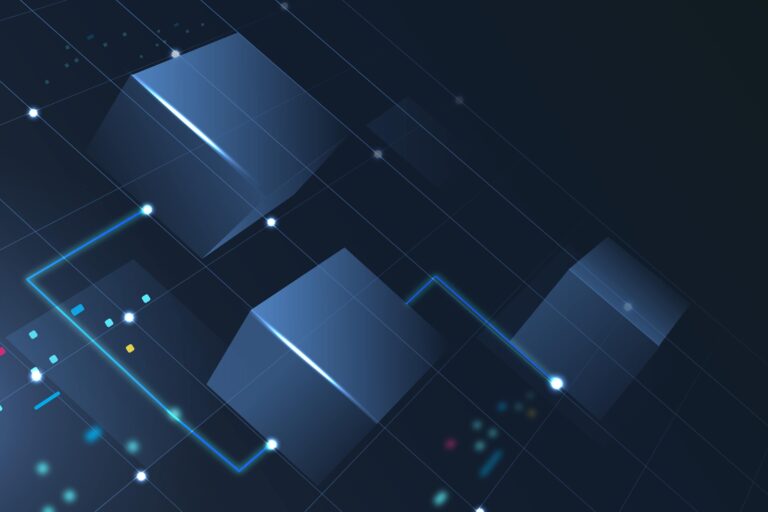
Decentralized autonomous organizations are often described as the future of blockchain and work. As a concept and a technology, DAOs are rapidly changing the structure of a legacy business by empowering platform members and eliminating centralized leadership.
DAOs support any revolutionary solution, from a crypto trading platform to an NFT marketplace or metaverse projects. Understanding the power of a DAO-based platform and the benefits it provides to businesses and users, companies realize the potential of DAO development. For example, such platforms help build trust among users and investors, which can be key to a successful project.
Not sure which governance model fits your product? Start with blockchain consulting, and we’ll map the safest architecture and launch steps.
An NFT DAO is a decentralized community that uses smart contracts and voting to manage an NFT collection, an NFT-driven platform, or a shared treasury. In search terms, DAO NFTs often refers to NFT projects where key decisions are made through DAO governance.
Most of the time, no. NFT DAO is the more precise term for a DAO connected to NFTs, while DAO NFTs is a common shorthand people use when searching for DAO-governed NFT projects.
A DAO for an NFT project is commonly used to vote on roadmap priorities, allocate treasury funds, approve partnerships, set community rules, and sometimes define policies around utilities or ecosystem incentives.
A collector DAO pools funds from members to buy, manage, and sometimes fractionalize NFTs. Instead of one buyer owning a high-value asset, the DAO coordinates collective ownership and decisions around custody, display, or resale.
In an NFT-gated DAO, membership (and often voting rights) comes from holding a specific NFT. In a token-gated DAO, governance power is tied to fungible tokens (ERC-20), which can be easier to accumulate—so projects often add rules to reduce “whale” influence.
Many NFT DAOs start with off-chain (gasless) voting for proposals and community signalling, then use on-chain execution for actions that require smart contract enforcement (like treasury moves, upgrades, or parameter changes).
Most DAOs use a multi-signature wallet with clear signer policies, spending limits, and transparent reporting. For higher security, projects add timelocks for sensitive actions and require audits for critical smart contracts.
Start by defining the goal (collector DAO vs governance for an NFT project), choose NFT-gated or token-gated membership, set voting rules (quorum, thresholds, delegation), secure the treasury (multi-sig), and move critical actions to on-chain execution when needed.